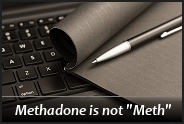 It has been said in the treatment and recovery community that addiction is a disease of feelings. What is specifically meant by this is that addicted individuals typically have difficulty coping with emotions and are often triggered by them to use drugs in the traditional chemical coping paradigm.
It has been said in the treatment and recovery community that addiction is a disease of feelings. What is specifically meant by this is that addicted individuals typically have difficulty coping with emotions and are often triggered by them to use drugs in the traditional chemical coping paradigm.
When individuals enter treatment and begin a personal recovery process, they learn that they have often numbed feelings through long term drug abuse, or escaped emotional discomfort through the ritual of using. Feelings like depression, anger, impatience, loneliness, boredom, guilt, and general stress can act as fuel for drug use.
A strong connection can develop over the years between experiencing emotional triggers and finding relief through opioids or other drugs. This connection occurs so naturally for addicted individuals that they are not aware of this process within themselves. Once they stop numbing feelings and establish drug abstinence, the full force of emotions may begin to come back. This can be a challenging time for people in early recovery as they learn to feel their feelings and to deal with them in healthy, constructive ways.
The answer is not hidden in a quick fix, but in learning new skills & approaches for “dealing with life on life’s terms” (a phrase often used in recovery circles and 12 Step meetings). Opioid replacement therapy alone can provide a certain comfort, hope, and stress reduction for individuals since their physical sickness from opioid withdrawal is eventually eliminated.
However, there is more learning & change that is necessary in order to become mentally healthier, and to develop a true personal recovery which will sustain an individual for the rest of his or her life. This learning involves gaining an understanding of one’s addiction, how to prevent relapse, improving one’s general coping skills, building a support network, and restructuring one’s life such that high risk drug associations are ended (or effectively managed).
Coping with feelings is an essential relapse prevention goal in every recovery program. The counseling component of treatment is an important tool that helps a person learn to experience life … without using illicit substances. Good methadone treatment clinics always provide their clients with counseling. Structured counseling is the single greatest resource available for teaching needed coping skills. Most importantly, choosing recovery is a wonderful decision and the beginning of a new life. Everyday, people decide they are finally ready for a change. Recovery is a positive process. Get started today!

 Follow
Follow

 Many opioid addicted people have discovered that trying to detox off of opioids “at home” does not work and leaves them feeling miserable. There are some individuals that have “kicked the habit” without medication-assistance or a medically supervised detoxification. However, these success stories are somewhat rare, and usually pertain to people with a comparatively milder opioid addiction or an addiction of relatively shorter duration.
Many opioid addicted people have discovered that trying to detox off of opioids “at home” does not work and leaves them feeling miserable. There are some individuals that have “kicked the habit” without medication-assistance or a medically supervised detoxification. However, these success stories are somewhat rare, and usually pertain to people with a comparatively milder opioid addiction or an addiction of relatively shorter duration. Florida currently hosts opioid treatment clinics in about 30 of its largest and most popular cities. The state is ranked 4th nationally in population with an estimated 18.6 million people residing in The Sunshine State. As is typically the case, the number of suboxone-approved physicians considerably outnumber actual “clinics” that dispense methadone or suboxone. The Miami area, for example, has about 60 such suboxone-approved doctors treating opioid addicted persons.
Florida currently hosts opioid treatment clinics in about 30 of its largest and most popular cities. The state is ranked 4th nationally in population with an estimated 18.6 million people residing in The Sunshine State. As is typically the case, the number of suboxone-approved physicians considerably outnumber actual “clinics” that dispense methadone or suboxone. The Miami area, for example, has about 60 such suboxone-approved doctors treating opioid addicted persons. I was speaking with someone the other day about methadone and they asked me if methadone was the same thing as “meth”. They had heard about “meth labs” on the news and people being arrested for manufacturing “meth” in their homes to sell illegally on the street. This individual was wondering if “meth” and methadone were the same thing. They are not!
I was speaking with someone the other day about methadone and they asked me if methadone was the same thing as “meth”. They had heard about “meth labs” on the news and people being arrested for manufacturing “meth” in their homes to sell illegally on the street. This individual was wondering if “meth” and methadone were the same thing. They are not! The two primary components of opioid addiction treatment are opioid replacement therapy (methadone or suboxone) and behavioral health counseling. Each of these therapeutic interventions address very different aspects of one’s addiction. And one intervention, without the other, is generally not sufficient to promote lasting recovery from opioid addiction. Both must work in unison to produce meaningful, lasting change.
The two primary components of opioid addiction treatment are opioid replacement therapy (methadone or suboxone) and behavioral health counseling. Each of these therapeutic interventions address very different aspects of one’s addiction. And one intervention, without the other, is generally not sufficient to promote lasting recovery from opioid addiction. Both must work in unison to produce meaningful, lasting change.


